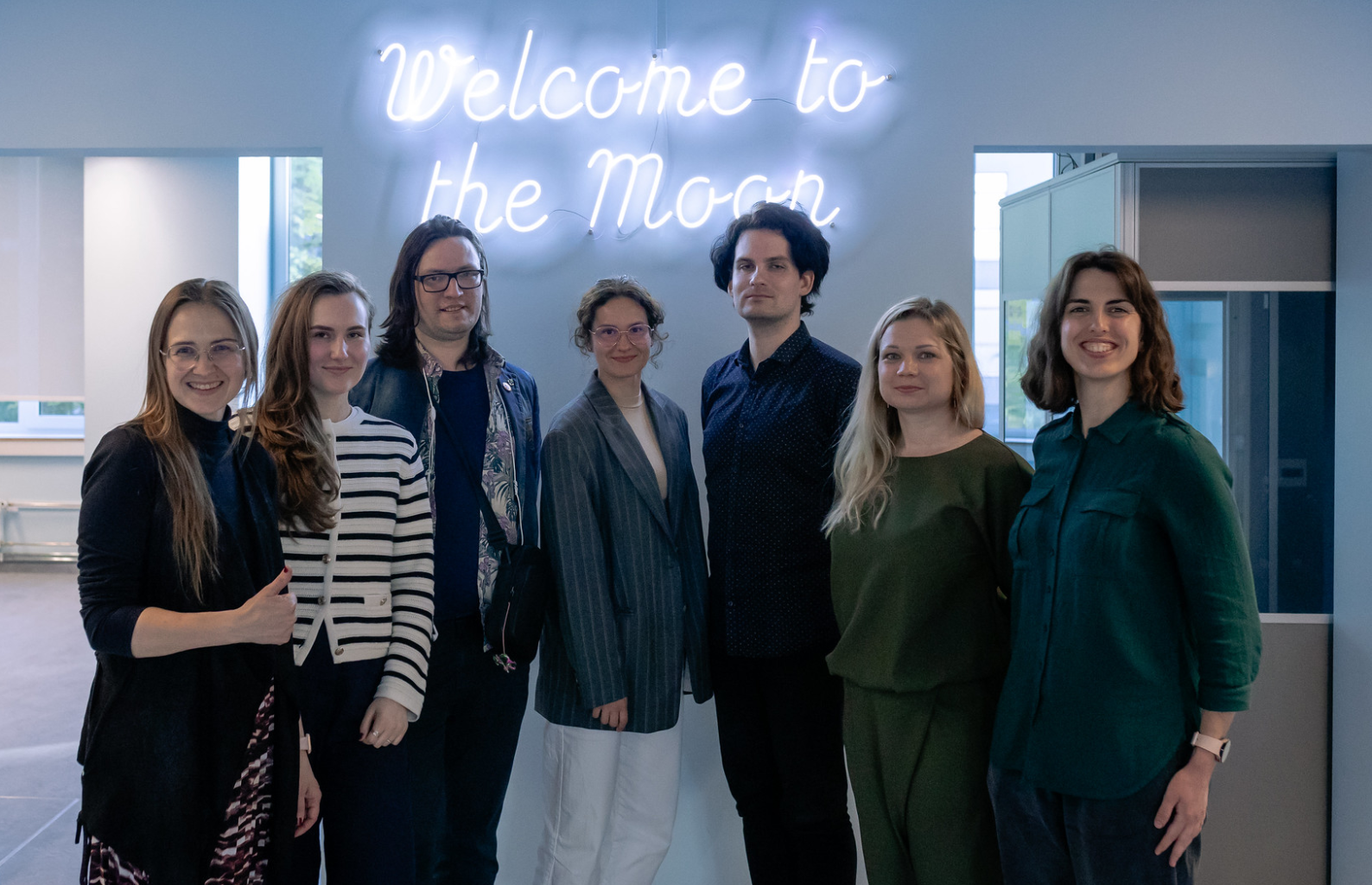Students develop digital prototypes for health, education, environment, and quality of service solutions
On 24 May, students in the programme Creating Innovative Digital Solutions for HPC Challenges, the first of its kind organised by Rīga Technical University (RTU), are developing user-friendly apps, websites, algorithms, and development schemes. They are collecting, aggregating, and mapping big data, as well as training artificial intelligence. Their goal is to offer prototypes of digital solutions for challenges faced by various Latvian companies and the Children’s Clinical University Hospital. The next challenge will be arranged in the autumn to help Latvian students gain high-level digital skills.
At the invitation of the forest agency Rīgas meži, a team of students is developing a solution to assess the green infrastructure of urban areas using artificial intelligence for image recognition. Another team is prototyping an education innovation in response to a challenge from the technology company Accenture – adaptive learning content that will adapt to students’ individual needs in real time. Technology solutions could also improve the delivery of palliative care services to patients at the Children’s Clinical University Hospital. The students’ solution to the hospital’s challenge is a user-friendly app that would provide information related to patients’ treatment and care, including data on the availability of medical equipment. By exploring the possibilities offered by computer vision, machine learning, and supercomputing, the students also propose a conceptual solution to a challenge posed by SIA Datamed to digitalise medical data. Yet another team is mapping data and training computer vision software to recognise and distinguish good from bad quality cable connections, which would improve service in response to a challenge from telecommunications company Tet. Students also demonstrated the value of data by developing an algorithm for predicting the workforce’s ability to ensure deliveries at the invitation of the start-up Bruntor. The algorithm is based on the company’s data.
The companies had a positive view of the students' work.
The first programme Creating Innovative Digital Solutions for HPC Challenges was mainly attended by students from different Rīga Stradiņš University (RSU) study programmes, RTU, and the University of Latvia (LU). They mastered digital prototyping and design thinking methods and used digital tools and the RTU supercomputer. They worked closely with industry experts and mentors from different fields to develop their solutions.

Participants in the programme
The programme is part of the ambitious project High Level Digital Skills Acquisition in Latvia in High Performance Computing (no. 2.3.1.1.i.0/1/22/I/CFLA/003), in which RSU, RTU, and LU are developing and implementing 12 study modules in the field of high-performance computing. The project is funded by the Recovery and Resilience Facility of the EU. It aims to increase the number of professionals in Latvia with high-level digital skills (DigComp levels 7-8) who can use technology to develop new knowledge- and technology-intensive products and services in different sectors, and to create synergies between higher education, science, and industry that foster innovation with maximum commercialisation and export potential.

Related news
 Teaching future cardiologists: insights from Dr. Philipp at RSU’s Stade BranchFor Students, International Cooperation, Stade
Teaching future cardiologists: insights from Dr. Philipp at RSU’s Stade BranchFor Students, International Cooperation, Stade


